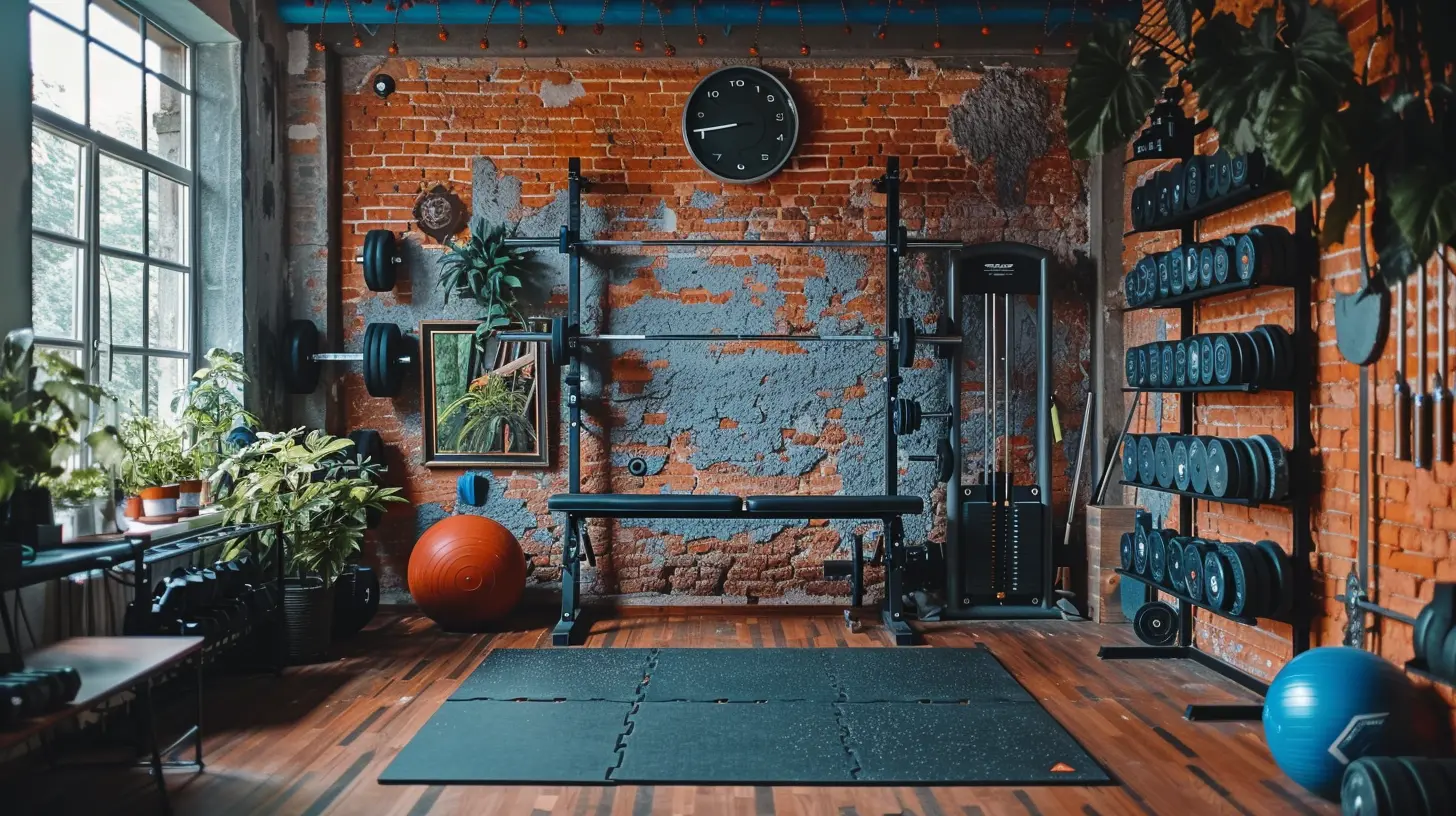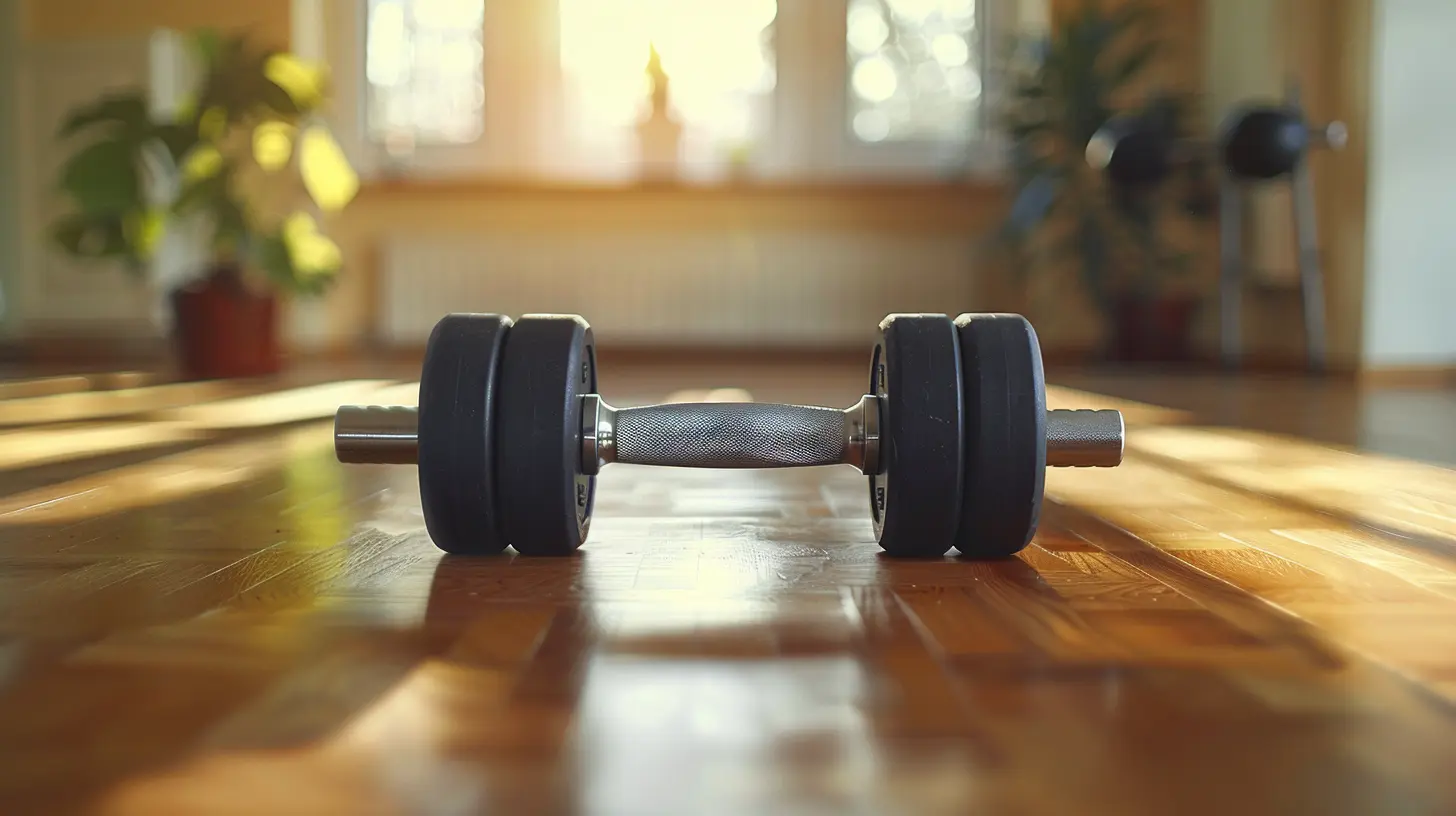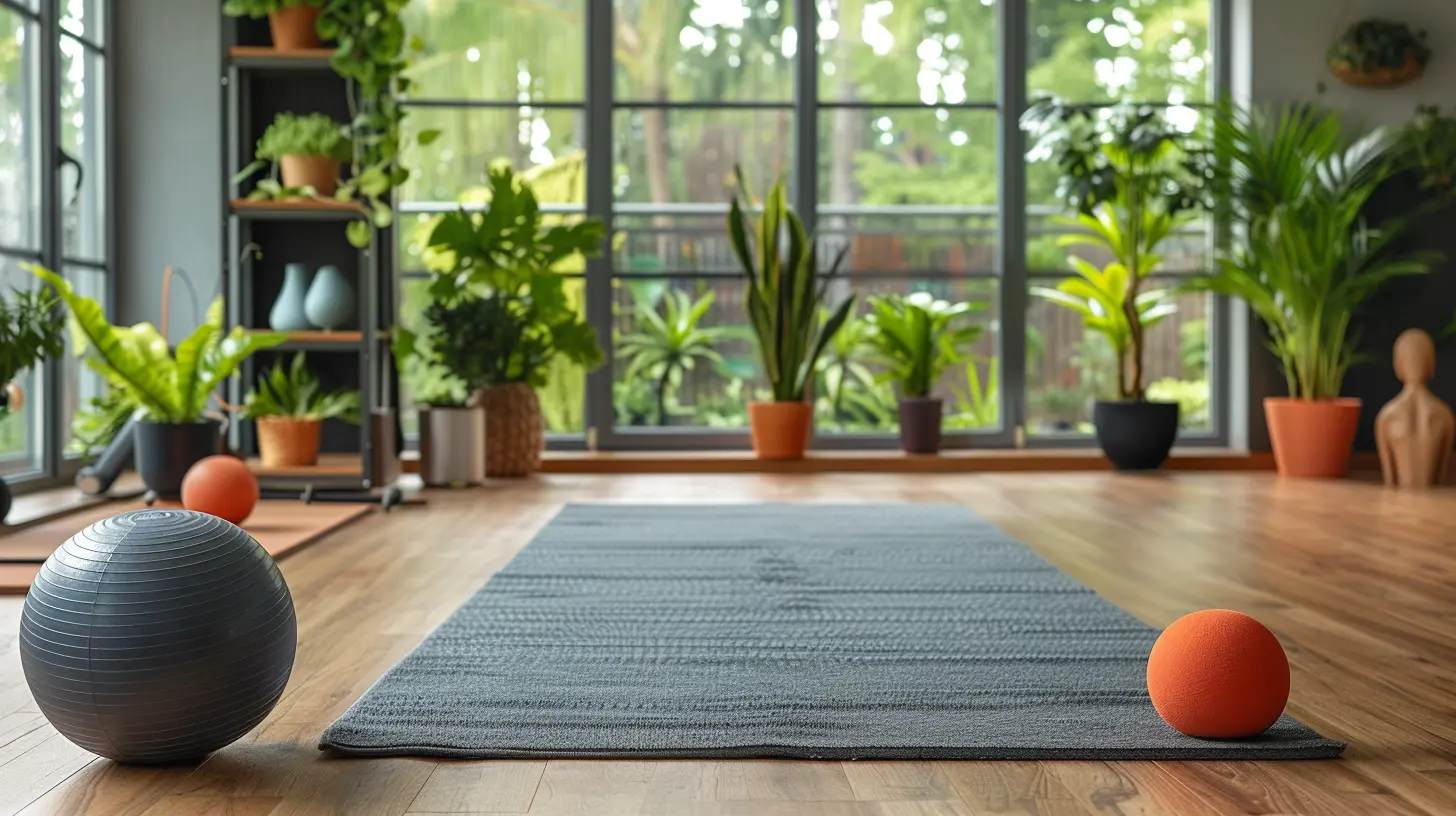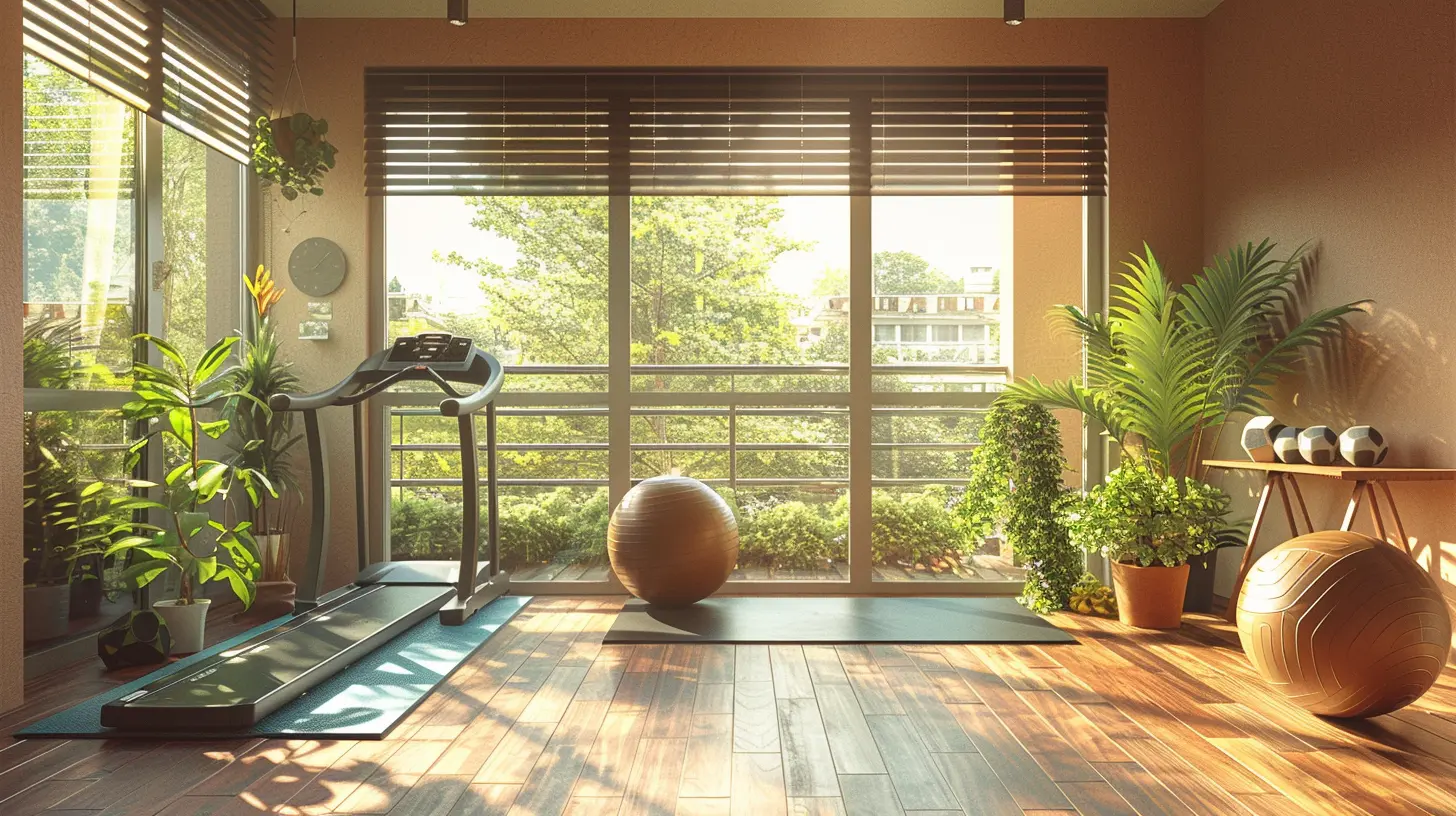Creating a Home Gym on a Budget: What You Really Need
23 August 2025
Ever thought about setting up a home gym but got discouraged by the hefty price tags on fancy equipment? You're not alone. The good news is, you don't need deep pockets to build a functional and effective workout space at home. With a little creativity and smart shopping, you can get all the essentials without draining your bank account.
In this guide, we’ll go over exactly what you need (and what you don’t) to create a budget-friendly home gym that keeps you fit and motivated. 
Why Build a Home Gym?
Let’s be real—gym memberships can add up fast. Not to mention the hassle of commuting, waiting for equipment, and dealing with crowded spaces. A home gym eliminates those barriers and gives you complete control over your fitness routine. Here are a few solid reasons why it’s worth considering:✅ Saves Money – No more monthly gym fees or gas costs.
✅ Convenience – Workout anytime, no excuses.
✅ Privacy – No judgment, just you and your goals.
✅ Time-Saving – Skip the commute and get straight to the workout. 
Setting a Budget for Your Home Gym
Before you start shopping, decide on a budget that works for you. A solid home gym can be built for as little as $100–$300, depending on what equipment you choose. The key is to prioritize essentials over fancy extras.Pro tip: You don’t need to buy everything at once! Start with the basics and add more as you go. 
The Essentials: What You Really Need
Not all home gym equipment is created equal. Some items are must-haves, while others are just expensive clutter. Here’s a breakdown of what you actually need to build a functional fitness space:1. Resistance Bands – $10-$30
If you’re looking for versatility on a budget, resistance bands are the way to go. They’re lightweight, affordable, and can be used for strength training, stretching, and even rehab exercises.💡 Pro Tip: Get a set with varying resistance levels to challenge different muscle groups.
2. Dumbbells (Adjustable or Fixed) – $30-$100
No gym is complete without dumbbells. They’re perfect for strength training, and you don’t need a gigantic rack of weights.- Adjustable dumbbells save space and allow you to change weights easily.
- Fixed dumbbells are great if you only need a few key sizes.
💡 Pro Tip: Start with a medium-weight pair (like 10-20 lbs) and build up from there.
3. A Sturdy Yoga Mat – $10-$40
A good yoga mat isn’t just for yoga—it’s essential for bodyweight exercises, stretching, and even as a cushion for certain weight-training moves. Plus, it protects your floor from damage.💡 Pro Tip: Get a non-slip, thick mat for better comfort and support.
4. Jump Rope – $10-$20
Want a cardio workout that burns fat, improves coordination, and boosts endurance? A jump rope is your best friend. It takes up almost no space and gets your heart rate up in minutes.💡 Pro Tip: Look for an adjustable rope to match your height perfectly.
5. Stability Ball – $20-$40
A stability ball adds a challenge to traditional exercises, helping improve core strength and balance. From crunches to planks, it’s a great tool to engage multiple muscle groups.💡 Pro Tip: Choose the right size based on your height for the best results.
6. Pull-Up Bar – $30-$50
If you have a doorway, you have a home pull-up station. A pull-up bar is excellent for upper body strength, targeting your arms, shoulders, and back.💡 Alternative: No place for a pull-up bar? Resistance bands can mimic pull-up movements for a similar effect.
7. Kettlebell – $30-$60
A single kettlebell can do wonders for strength, endurance, and mobility. Whether you're swinging, pressing, or squatting, it’s one of the most versatile workout tools out there.💡 Pro Tip: Start with a moderate weight (around 15-25 lbs for most people). 
Optional (But Nice to Have) Equipment
If you have extra room in your budget, consider these additions:✔ Foam Roller ($15-$30) – Great for muscle recovery and reducing soreness.
✔ Adjustable Bench ($50-$150) – Adds variety to strength training.
✔ Medicine Ball ($20-$50) – Perfect for explosive movements and core workouts.
✔ Battle Ropes ($50-$100) – Excellent for cardio and strength endurance.
Tips for Saving Money on Home Gym Equipment
Building a home gym doesn’t mean you need to splurge. Here’s how you can keep costs down:1. Buy Second-Hand
Check Facebook Marketplace, Craigslist, and thrift stores. Many people sell barely used gym equipment for a fraction of the price.2. Look for Deals & Discounts
Retailers like Amazon, Walmart, and sporting goods stores often have sales. Keep an eye out for Black Friday and holiday deals.3. DIY Where Possible
Can’t afford a weight bench? Use a sturdy chair or coffee table. Want a sandbag? Fill an old duffel bag with rice or sand.4. Prioritize Multi-Use Equipment
Choose items that allow for multiple exercises. A kettlebell, resistance bands, or dumbbells can do the job of several machines.5. Skip the Non-Essentials
Fancy machines and high-tech gadgets might look cool, but you don’t need them to get in shape. Stick with fundamentals that provide real results.Creating Your Workout Space
Once you have the essentials, set up a dedicated workout area—even if it’s just a small corner of your living room. Here’s how:✔ Choose the Right Spot – Basement, garage, or even an open space in your bedroom will work.
✔ Keep It Organized – Use shelves or bins to store equipment neatly.
✔ Good Flooring Matters – If possible, get rubber mats to protect your floor and minimize noise.
✔ Add Some Motivation – Posters, a mirror, or a killer playlist can keep you pumped!
Final Thoughts
You don’t need a high-end gym membership or expensive machines to get fit. With the right budget-friendly equipment and a little creativity, you can build a home gym that meets all your fitness needs—without going broke.So, what are you waiting for? Start small, stay consistent, and watch your home gym (and fitness level) grow over time. The best investment you can make is in your health, and now you know how to do it without spending a fortune!
all images in this post were generated using AI tools
Category:
Home WorkoutsAuthor:

Madeline Howard
Discussion
rate this article
1 comments
Lanae Newton
Great tips! A budget-friendly home gym can transform your fitness journey!
September 1, 2025 at 4:01 AM

Madeline Howard
Thank you! I'm glad you found the tips helpful. A budget-friendly home gym can indeed make a big difference!


